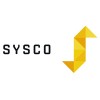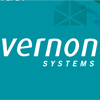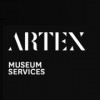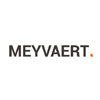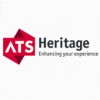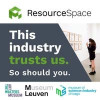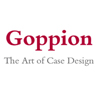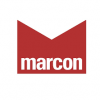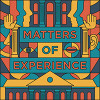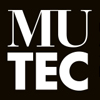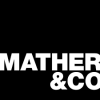Becoming an Institution of the Commons: Giulia Gregnanin, Director…
Future of Museums: Build The House They Rock In
What kind of museum will the next generation dream…
Transforming Youth Engagement in Your Museum – 28 Jan
Discover creative approaches, actionable ideas and practical tools to…
Playful Approaches to Museum Interpretation – 18 Feb
Explore the role of play and its purpose in…
Making Playable Immersive Experiences in Your Museum – 18 March
How to Make Playable Immersive Experiences in Your Museum:…
The Co-created Museum: co-creating with communities – 15 April
Gain practice-based insights into designing, developing, and delivering co-creation…
Creating Authentic and Unique Museum Experiences – 10 June
Explore the good of being different in a time…
AI and Digital Innovation in Museums – 8 July
AI is changing the way we work. Discover how…
Co-production and Social Justice in Museums – 9 Sep
Join us on 9th September for the Social Justice…
Museums, Co-Creation and Making Change – 16 Sep
Discover how to achieve meaningful co-creation with communities and…
Museum Ideas 2025 Conference, London – 17 Sep
“A conference for mind expanding conversations and international networking”…
The Co-creation Game: Does Museum Co-creation Risk Becoming Performance?
Stephen Welsh on how equity and humility can flourish…
How Museums Can Shape a More Equitable and Sustainable World
The International Committee of Museums and Collections of Modern…
Museum Ideas 2024 International Conference – 10 October
“A conference for mind expanding conversations and international networking”…
The Co-created Museum: How to Approach Co-creation Projects – 9 Oct
Explore how to approach co-creation in museums in our…
How AI Will Transform Museums – 5 November 2024
AI is changing the way we work. Discover how…
Social Justice in Museums: advocacy, activism and co-production — 18 June
Join us on 18th June for the Social Justice…
AI and the Next Wave of Digital Innovation in Museums — 21 May 2024
AI is changing the way we work. Discover how…
People Centred and Community Led Interpretation — 19 March 2024
Discover how you and your museum might break free…
Museums, Co-Creation and Making Change – 20 February 2024
Discover how to achieve meaningful co-creation with communities and…
Making Playable Immersive Experiences in Your Museum – 30 January 2024
How to Make Playable Immersive Experiences in Your Museum:…
Change and Momentum in Museums: Turning Challenge into Opportunity
Steve O’Connor on getting a grip on finances, pulling…
Human Rights and Cultural Heritage: new avenues to resolve restitution claims?
The increasing intersection between art restitution and human rights…
Museum Ideas 2023 International Conference – 12 October, London
Explore the ideas shaping the future of museums and…
ResourceSpace
ResourceSpace Unit 52-53 Shrivenham Hundred Business Park Watchfield Oxfordshire…
Mather & Co
Mather & Co Century House 17 Manchester Road Wilmslow…
FutureMuseum: Decolonizing the Museum in Africa
Boubacar Diallo, Head of Collection and Inventory Department at…
Cultural Spaces as Generators of Social Change
Miranda Millward and Thomas Procter-Legg on what happens when…
2023 Conference and Study Day Programme – Museum Ideas
Explore the ideas shaping the future of museums with…
How to Create Next Generation Museum Experiences — 7 February 2023
In this study day you will co-create your own…
How to Develop Community Led Collecting & Curation — 28 March 2023
This study day will explore new approaches and ways…
How to Deliver Co-creation Projects in Your Museum — 28 February 2023
Learn how to develop and deliver co-creation policies, practice…
How to Create Immersive Games in Your Museum — 14 February 2023
In this study day participants get the unique experience…
How to Create Community-Led Queer Programming in Your Museum — 18 April
Discover how to create award-winning, community-led tours and event…
How to Use the Power of Collections in Advocacy — 16 May 2023
In this study day you will explore how museums…
Museum Ideas 2022 Conference — 6 October 2022
Explore the ideas shaping the future of museums. Join…
People Centred and Community Led Interpretation — 12 July 2022
Museums have worked with communities for years and the…
Developing Community-Led Queer Programming — 28 June 2022
Discover how to create award-winning, community-led tours and event…
Designing Museum Experiences in the Digital Age — 14 June 2022
The technologies maturing in the next ten years will…
Creating Immersive Games in Your Museum — 17 May 2022
In this study day participants get the unique experience…
Applying Class to Museum Collections — 26 April 2022
Professor Dave O’Brien of the University of Sheffield –…
Opening Up: Creating Your Own Co-Creation Model — 29 March 2022
Improving access to collections for a wider range of…
Author Archives: Greg
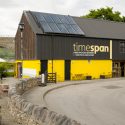
Redefining the Museum as a Shared Resource
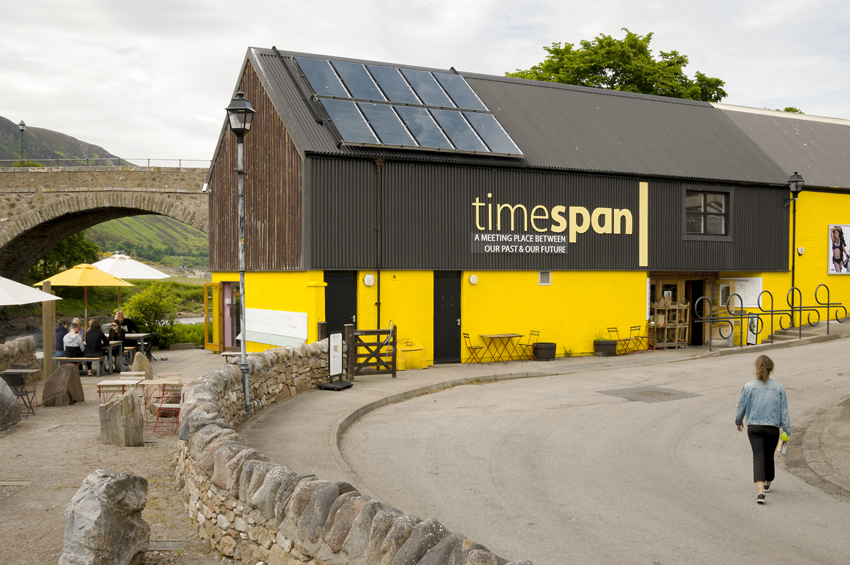
Becoming an Institution of the Commons: Giulia Gregnanin, Director and Curator, on the radical redevelopment of Timespan in the Scottish Highlands and how they are reimagining the museum as an Institution of the Commons, where cultural space is shaped collectively
Museums are undergoing a fundamental shift, moving away from inherited institutional structures that reinforce dominant narratives towards models that prioritise collective authorship, redistribution, and social action. At Timespan in the Scottish Highlands, we intend to be at the forefront of this transformation. For nearly four decades, as a small but ambitious museum, we have used our holistic model—blending heritage, contemporary art, and social action—to challenge extractive histories and propose diverse forms of participation. Now, through a radical redevelopment, we are taking the next step: reimagining ourselves as an Institution of the Commons, where cultural space is shaped collectively.
Françoise Vergès, in A Programme of Absolute Disorder: Decolonizing the Museum (Pluto Press, 2024), argues that decolonising museums requires more than expanding representation—it demands a structural undoing of inherited institutional models. Taking inspiration from her critique of the “universal museum” and its complicity in colonial extraction, we reject the notion of a neutral, authoritative institution. Instead, we position ourselves as a shared resource, actively engaging in justice-oriented museum practices that redistribute power, knowledge, and agency. This transformation is not about inclusion within existing frameworks but about dismantling and reassembling them in ways that acknowledge historical injustices and create new forms of cultural stewardship.
We reject the notion of a neutral, authoritative institution. Instead, we position ourselves as a shared resource, actively engaging in justice-oriented museum practices that redistribute power, knowledge, and agency
At the centre of this transformation is an architectural project that will redefine our physical and conceptual frameworks. In September 2024, thanks to the support of Museum Galleries Scotland and the National Lottery Heritage Fund, our transformative ambitions became possible. We launched a nationwide competition to reimagine our building as a more cohesive, accessible, and sustainable space. Assemble and Office Corr Higgins were selected to lead a feasibility study, embedding our research into climate justice, colonial legacies, and local histories into the very fabric of our institution. In this process, architecture is not merely functional—it becomes an active tool in unsettling traditional power structures and fostering a collective cultural space.
The Site as a Living Archive of Labour and Displacement
Our building—a former herring curing yard—embodies Helmsdale’s history of forced displacement and industrial labour. The modern village was planned in 1814 as a resettlement for communities forcibly cleared from the surrounding straths to make way for sheep farming. Fishing was imposed as their new livelihood, and Helmsdale grew into one of the largest herring ports in Europe. Our site, originally built for curing and processing herring, was central to this industry, where for much of the 19th and 20th centuries, hundreds of women gutted fish for the local and transatlantic trade. These entangled histories of displacement, migration, and gendered labour remain central to our approach today.
Since our inception in 1986, we have continually evolved, with a gallery added in 1996 and a major redevelopment in 2007 introducing a public archive, workshop spaces, and a contemporary art exhibition programme. However, the limitations of our current infrastructure now pose barriers to our ambitions. Becoming an Institution of the Commons requires a built environment that enables shared ownership, knowledge production, and inclusive participation.
Architecture as a Tool for Institutional Change
The redevelopment of our building began with an open tender, facilitated by RIAS Consultancy, to find an architectural approach that balances local needs with global ambitions. Out of 38 applications, five shortlisted teams participated in site visits and consultations with our community, ensuring the process remained inclusive and participatory. Ultimately, Assemble and Office Corr Higgins were selected for their interdisciplinary and socially engaged approach, which aligns closely with our vision of creating a museum that is not only accessible but also responsive to the needs of our community and the broader social and environmental challenges we face. Assemble and Office Corr Higgins understand that museums are not just buildings, but civic spaces shaped by those who use them. Their approach ensures that we will remain locally rooted while addressing broader social and environmental concerns.
We are embedding participatory design into the redevelopment process. Our goal is not just to build a better museum, but to establish new models for shared cultural stewardship
Our commitment to environmental justice extends beyond reducing our carbon footprint. The study will explore the use of local materials and craftspeople, reinforcing a circular economy while reducing embedded emissions. It will also investigate alternative energy solutions and sustainable construction methods, ensuring long-term resilience.
Physical and intellectual accessibility are at the core of the redesign. Beyond improving mobility access, we are rethinking exhibition formats and digital engagement strategies to ensure that our institution serves a broad spectrum of audiences, including those historically excluded from cultural spaces.
We are embedding participatory design into the redevelopment process through community workshops, surveys, and collaborative decision-making frameworks. Our goal is not just to build a better museum, but to establish new models for shared cultural stewardship.
In March 2025, the first round of consultations gathered intergenerational groups from the Helmsdale community, including young people, to envision our future. Parallel to this, an online survey extended the discussion to diasporic communities with historical ties to the region. This process ensures that the redevelopment reflects the lived experiences and aspirations of those who use the space.
Reframing Our Collections and Narratives
Our physical transformation is accompanied by a fundamental rethinking of our collections and interpretation strategies. Supported by Esmée Fairbairn funding, we have been conducting a radical review of our collection and archival holdings, reinterpreting objects through the lens of climate crisis, colonial legacies, and labour histories. This process challenges the conventional role of rural museums as static repositories of the past, instead positioning us as a site of active historical inquiry and contemporary relevance.
The exhibition Red Herrings by Joanne Coates exemplifies this shift. The project, developed through archival and field research, investigates women’s labour, class solidarity, and economic migration through the history of the Gutting Girls. This approach underscores our commitment to using art and heritage as tools for critical reflection and social justice.
Unfolding the Future
By mid-2025, we will present the feasibility study’s findings, marking the transition from planning to implementation. Securing funding will be an ongoing challenge, but we remain committed to ensuring that this transformation is not merely architectural—it is a redefinition of what a museum can be.
Our evolution reflects broader questions facing the sector: How can museums move beyond extractive models of cultural production? What does it mean for a museum to belong to its communities rather than simply serve them? As we reimagine ourselves as an Institution of the Commons, we do not claim to have definitive answers. Instead, we approach these questions as an ongoing process—one grounded in shared resources, collective knowledge, and a commitment to radical accessibility.
Giulia Gregnanin
Director and Curator, Timespan
Giulia Gregnanin is speaking at Museum Ideas 2025 in London. Explore how museums can be reimagined as co-created, people-focussed organisations in a time of growing inequality, environmental emergency and political crisis. Join us on 17 September to connect with colleagues from across the world, share meaningful discussions, and explore the ideas shaping the future of museums

Future of Museums: Build The House They Rock In
What kind of museum will the next generation dream… Continue Reading
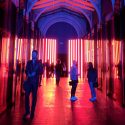
Transforming Youth Engagement in Your Museum – 28 Jan
Discover creative approaches, actionable ideas and practical tools to… Continue Reading
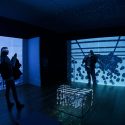
Playful Approaches to Museum Interpretation – 18 Feb
Explore the role of play and its purpose in… Continue Reading
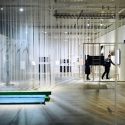
Making Playable Immersive Experiences in Your Museum – 18 March
How to Make Playable Immersive Experiences in Your Museum:… Continue Reading

The Co-created Museum: co-creating with communities – 15 April
Gain practice-based insights into designing, developing, and delivering co-creation… Continue Reading
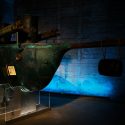
Creating Authentic and Unique Museum Experiences – 10 June
Explore the good of being different in a time… Continue Reading
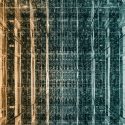
AI and Digital Innovation in Museums – 8 July
AI is changing the way we work. Discover how… Continue Reading
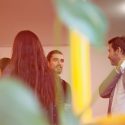
Co-production and Social Justice in Museums – 9 Sep
Join us on 9th September for the Social Justice… Continue Reading
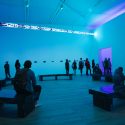
Museums, Co-Creation and Making Change – 16 Sep
Discover how to achieve meaningful co-creation with communities and… Continue Reading

Museum Ideas 2025 Conference, London – 17 Sep
“A conference for mind expanding conversations and international networking”… Continue Reading

The Co-creation Game: Does Museum Co-creation Risk Becoming Performance?
Stephen Welsh on how equity and humility can flourish… Continue Reading

How Museums Can Shape a More Equitable and Sustainable World
The International Committee of Museums and Collections of Modern… Continue Reading

Museum Ideas 2024 International Conference – 10 October
“A conference for mind expanding conversations and international networking”… Continue Reading
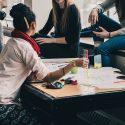
The Co-created Museum: How to Approach Co-creation Projects – 9 Oct
Explore how to approach co-creation in museums in our… Continue Reading

How AI Will Transform Museums – 5 November 2024
AI is changing the way we work. Discover how… Continue Reading
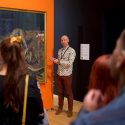
Social Justice in Museums: advocacy, activism and co-production — 18 June
Join us on 18th June for the Social Justice… Continue Reading

AI and the Next Wave of Digital Innovation in Museums — 21 May 2024
AI is changing the way we work. Discover how… Continue Reading
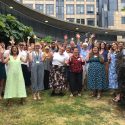
People Centred and Community Led Interpretation — 19 March 2024
Discover how you and your museum might break free… Continue Reading
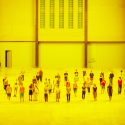
Museums, Co-Creation and Making Change – 20 February 2024
Discover how to achieve meaningful co-creation with communities and… Continue Reading
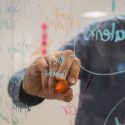
Making Playable Immersive Experiences in Your Museum – 30 January 2024
How to Make Playable Immersive Experiences in Your Museum:… Continue Reading
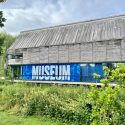
Change and Momentum in Museums: Turning Challenge into Opportunity
Steve O’Connor on getting a grip on finances, pulling… Continue Reading
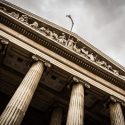
Human Rights and Cultural Heritage: new avenues to resolve restitution claims?
The increasing intersection between art restitution and human rights… Continue Reading
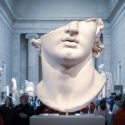
Museum Ideas 2023 International Conference – 12 October, London
Explore the ideas shaping the future of museums and… Continue Reading
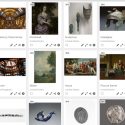
ResourceSpace
ResourceSpace Unit 52-53 Shrivenham Hundred Business Park Watchfield Oxfordshire… Continue Reading
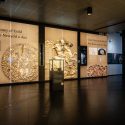
Mather & Co
Mather & Co Century House 17 Manchester Road Wilmslow… Continue Reading

FutureMuseum: Decolonizing the Museum in Africa
Boubacar Diallo, Head of Collection and Inventory Department at… Continue Reading
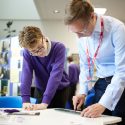
Cultural Spaces as Generators of Social Change
Miranda Millward and Thomas Procter-Legg on what happens when… Continue Reading

2023 Conference and Study Day Programme – Museum Ideas
Explore the ideas shaping the future of museums with… Continue Reading

How to Create Next Generation Museum Experiences — 7 February 2023
In this study day you will co-create your own… Continue Reading
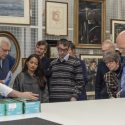
How to Develop Community Led Collecting & Curation — 28 March 2023
This study day will explore new approaches and ways… Continue Reading
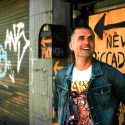
How to Deliver Co-creation Projects in Your Museum — 28 February 2023
Learn how to develop and deliver co-creation policies, practice… Continue Reading

How to Create Immersive Games in Your Museum — 14 February 2023
In this study day participants get the unique experience… Continue Reading
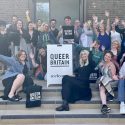
How to Create Community-Led Queer Programming in Your Museum — 18 April
Discover how to create award-winning, community-led tours and event… Continue Reading
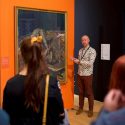
How to Use the Power of Collections in Advocacy — 16 May 2023
In this study day you will explore how museums… Continue Reading
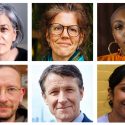
Museum Ideas 2022 Conference — 6 October 2022
Explore the ideas shaping the future of museums. Join… Continue Reading
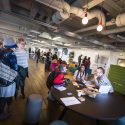
People Centred and Community Led Interpretation — 12 July 2022
Museums have worked with communities for years and the… Continue Reading

Developing Community-Led Queer Programming — 28 June 2022
Discover how to create award-winning, community-led tours and event… Continue Reading

Designing Museum Experiences in the Digital Age — 14 June 2022
The technologies maturing in the next ten years will… Continue Reading
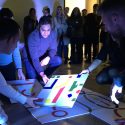
Creating Immersive Games in Your Museum — 17 May 2022
In this study day participants get the unique experience… Continue Reading

Applying Class to Museum Collections — 26 April 2022
Professor Dave O’Brien of the University of Sheffield –… Continue Reading
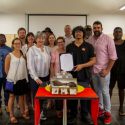
Opening Up: Creating Your Own Co-Creation Model — 29 March 2022
Improving access to collections for a wider range of… Continue Reading







